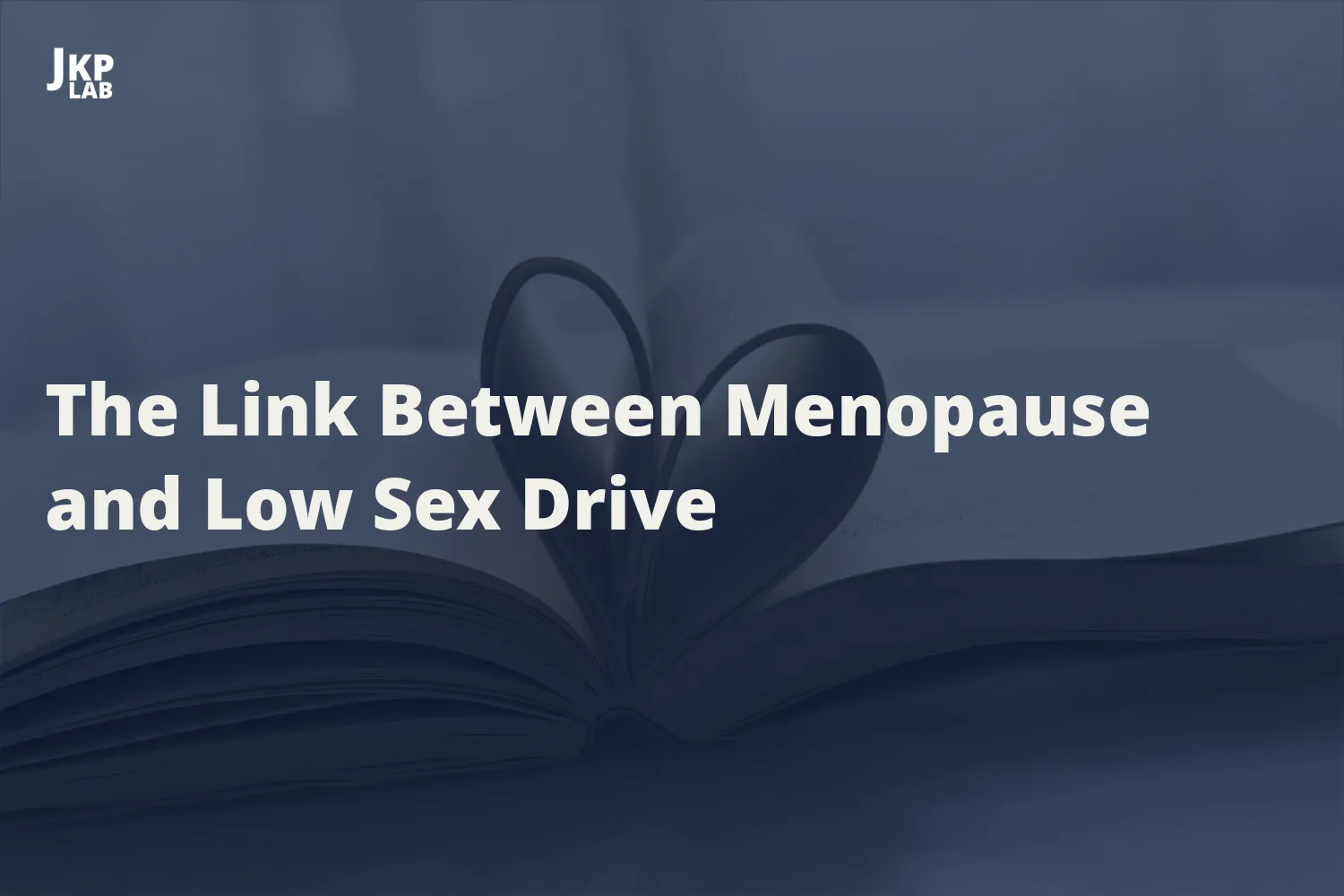
Understanding Menopause and Its Effects
Menopause is a natural phase in a woman’s life, marking the end of her reproductive years. Usually occurring between the ages of 45 to 55, menopause results from the gradual decrease in the production of female hormones: estrogen and progesterone.
So, what happens during menopause?
During this period, a woman’s ovaries stop releasing eggs, leading to the cessation of monthly menstrual cycles. This hormonal shift can lead to a variety of symptoms, ranging from mild to severe. Some common manifestations include:
- Hot flashes: Sudden sensations of heat, often accompanied by sweating and followed by chills.
- Mood swings: Feelings of irritability, sadness, or anxiety without a clear cause.
- Sleep disturbances: Difficulty falling asleep, staying asleep, or experiencing night sweats.
- Vaginal dryness: A decrease in natural lubrication, leading to discomfort or pain during intercourse.
Now, while these symptoms can undoubtedly be discomforting, they’re a normal part of the aging process. But, how do they relate to sexual health and intimacy?
As estrogen levels drop, many women experience a decrease in their sexual desire. The reduced blood flow to the genital area can make arousal more challenging, and the decreased lubrication can lead to painful intercourse – a condition known as dyspareunia. For more in-depth information on dyspareunia, readers can refer to the comprehensive guide on the topic: Understanding Dyspareunia: All You Need to Know About Painful Sex .
It’s essential to recognize that every woman’s experience with menopause is unique. Some may sail through with minimal symptoms, while others might find the journey more challenging. Understanding the changes happening in the body can help in finding the right solutions to navigate this phase with confidence.

What is Dyspareunia? The Painful Truth
Dyspareunia, a term that might sound complicated, simply means “painful intercourse.” It’s a concern that can affect anyone, regardless of age or gender, but is particularly common among women, especially those undergoing menopausal changes.
Why Does Dyspareunia Happen?
There are various reasons why someone might experience pain during intimacy. Some of these causes include:
- Vaginal dryness: A common symptom of menopause, it results from decreasing estrogen levels. This lack of natural lubrication can make intercourse uncomfortable or painful.
- Medical conditions: Conditions like endometriosis, pelvic inflammatory disease, or cystitis can lead to painful intercourse.
- Emotional factors: Stress, anxiety, and past traumatic experiences can also contribute to dyspareunia. The mind and body are deeply connected, and emotional well-being can directly impact physical comfort.
Recognizing the Signs
It’s vital to pay attention to one’s body and recognize when something feels off. Some signs of dyspareunia include:
- Pain upon penetration: This might be at the entry or deeper during intercourse.
- Burning or aching sensation: This discomfort might be felt during or after intimacy.
- Deep pain with specific movements: Certain angles or positions can exacerbate the pain.
Seeking Help
Experiencing pain during intimacy isn’t something anyone should simply “put up with.” Open communication with a partner and seeking medical advice are crucial steps in addressing dyspareunia. Remember, it’s not just about physical well-being but also about emotional health and maintaining a positive, fulfilling relationship.

The Link Between Menopause and Low Sex Drive
Menopause, while a natural part of life, can bring about several changes in a woman’s body. One of the notable shifts that often gets overlooked is the change in sexual desire. But why does menopause affect sex drive, and what can be done about it?
The Role of Hormones
The decline in estrogen and progesterone during menopause plays a significant role in many of the symptoms women experience, including changes in libido. Estrogen, in particular, is crucial for maintaining vaginal health, mood balance, and overall sexual well-being.
Some effects of declining estrogen include:
- Vaginal dryness: Reduced moisture and elasticity in the vaginal walls can make intimacy less comfortable and decrease the desire for sexual activity.
- Mood swings: Fluctuations in mood, such as irritability or feelings of sadness, can impact one’s interest in intimacy.
- Physical discomforts: Other menopausal symptoms like hot flashes, night sweats, or fatigue can contribute to decreased sexual desire, as they can be distracting or uncomfortable.
External Factors
While hormonal changes are a primary driver, it’s also essential to consider external factors that can impact libido during menopause:
- Relationship dynamics: The quality of a relationship can influence sexual desire. Open communication and understanding between partners become even more critical during this phase.
- Mental well-being: Stress, anxiety, or depression can decrease interest in sexual activity. It’s essential to address these factors for overall health and well-being.
- Medications: Some medications, including certain antidepressants, can affect libido. Always consult with a healthcare provider about potential side effects.
Embracing Change and Seeking Solutions
While menopause can bring about changes in sexual desire, it doesn’t mean the end of one’s intimate life. Many women find new depths and dimensions to their relationships as they navigate these changes. The key is understanding what’s happening in the body, communicating with partners, and seeking out solutions that can help enhance sexual well-being during this phase of life.

Natural Solutions for Enhancing Arousal
In a world full of synthetic solutions, many people seek natural ways to address their concerns. For those facing challenges with arousal and intimacy due to menopause, nature offers several remedies.
The Power of Herbs
Throughout history, various cultures have tapped into the power of herbs to enhance sensuality and arousal. Some popular herbs known to boost libido include:
- Ginseng: Often referred to as the “king of herbs,” ginseng is believed to boost energy and enhance physical and emotional well-being.
- Maca: This root vegetable, native to the Andes Mountains, has been touted for its ability to increase stamina and sexual desire.
- Ginkgo Biloba: Known for its memory-enhancing effects, this herb also improves blood flow, which can assist with arousal.
Lifestyle Choices Matter
Certain lifestyle choices can naturally enhance arousal and overall sexual well-being:
- Exercise: Regular physical activity not only boosts energy but also helps improve blood circulation, which plays a key role in arousal. Plus, exercises like yoga and Pilates can increase flexibility, adding another dimension to intimacy.
- Healthy Diet: Foods rich in omega-3 fatty acids, antioxidants, and vitamins can improve mood and hormone production. Foods like salmon, walnuts, and berries come packed with these nutrients.
- Mindfulness and Meditation: Connecting with one’s body and mind can enhance the intimate experience. Mindfulness practices and meditation can help in understanding and being in touch with one’s desires.
Natural Lubricants
Vaginal dryness is a common challenge during menopause. Fortunately, natural lubricants like coconut oil, aloe vera gel, and vitamin E oil can provide relief. These solutions not only ease discomfort but are free from chemicals, making them gentle on the skin.
While nature offers a treasure trove of solutions, it’s essential to remember that every individual is unique. What works wonders for one might not have the same effect on another. It’s always a good idea to consult with a healthcare provider before trying any new remedy.

Introducing Spanish Fly Pro: A Gentle Boost
In the quest to find effective solutions for intimacy challenges, many turn to products that promise results. Among these, Spanish Fly Pro stands out as a popular choice for both men and women. But what exactly is Spanish Fly Pro, and how can it be a game-changer?
The Story Behind Spanish Fly Pro
Spanish Fly Pro is a modern adaptation of the age-old Spanish Fly remedy. While the traditional Spanish Fly has been used for centuries as an aphrodisiac, the modern version is safer and formulated with natural ingredients to enhance arousal and improve sexual experiences.
Benefits of Spanish Fly Pro
Here’s what makes Spanish Fly Pro a go-to choice for many:
- Natural Ingredients: Made with a blend of herbal extracts, it ensures that users get the benefits without any harmful side effects.
- Quick Action: Spanish Fly Pro works swiftly, often showing results within minutes of consumption.
- Increased Arousal: By improving blood flow and stimulating the body, it can increase arousal and heighten sensations.
- Enhanced Libido: Regular use can lead to an improved sex drive, making intimacy more frequent and enjoyable.
How It Complements Natural Solutions
Spanish Fly Pro isn’t about replacing natural solutions. Instead, it’s about complementing them. When combined with a healthy lifestyle, mindful practices, and natural remedies, it offers that extra push for a more fulfilling intimate life.
However, as with any product, it’s always best to ensure it aligns with individual needs and conditions. Consulting with a healthcare provider before incorporating Spanish Fly Pro into one’s routine can offer clarity and confidence in its usage.

Navigating Intimacy: Communication is Key
Even with a range of solutions at one’s disposal, one element stands out as crucial in addressing intimacy challenges: communication. It’s the bridge that connects partners, fosters understanding, and paves the way for a fulfilling relationship.
Why Talk About Intimacy?
Talking about intimacy can be daunting for many, but it’s essential for several reasons:
- Understanding and Empathy: Sharing feelings allows partners to step into each other’s shoes. It helps in understanding the challenges faced and fosters empathy.
- Setting Expectations: By discussing desires, boundaries, and concerns, partners can set clear expectations, minimizing misunderstandings and disappointments.
- Enhancing the Experience: When both partners are on the same page, it can lead to more satisfying and enjoyable intimate moments.
Tips for Effective Communication
Starting the conversation might be the hardest part. Here are some strategies to help:
- Choose the Right Time: Finding a quiet, relaxed setting free from distractions can set the stage for open communication.
- Be Open and Honest: Speaking from the heart, even if it feels vulnerable, can lead to deeper connections.
- Listen Actively: It’s not just about speaking; it’s equally essential to listen without judgment.
- Seek Professional Help: Sometimes, having a mediator or therapist can assist in opening channels of communication, especially if challenges persist.
While products like Spanish Fly Pro can offer a boost in the physical aspects of intimacy, open dialogue ensures that emotional and psychological needs are also met. After all, a relationship thrives when both partners feel understood and valued.

Embracing a Journey of Discovery and Fulfillment
Intimacy is an evolving journey, and like any journey, there will be peaks and valleys. The challenges posed by menopause and dyspareunia can seem daunting, but with understanding, communication, and the right solutions, they can be navigated with grace and confidence.
Celebrating the Silver Linings
While menopause brings changes, it also offers opportunities:
- Newfound Freedom: With the worry of unplanned pregnancies behind, many women find a newfound freedom in their intimate lives.
- Deeper Connection: Facing challenges together can deepen the bond between partners, leading to a more profound connection.
- Personal Growth: Understanding one’s body and needs during this phase can lead to personal growth and a renewed sense of self.
Making Informed Choices
Knowledge is empowerment. By staying informed about conditions like dyspareunia and understanding the changes that menopause brings, individuals can make choices that align with their well-being. Whether it’s opting for natural remedies, trying out products like Spanish Fly Pro, or seeking professional guidance, the power lies in informed decisions.
Conclusion
Life is full of transitions, and while menopause and dyspareunia represent specific challenges, they’re just another part of the journey. By embracing change, seeking solutions, and prioritizing open communication, individuals can continue to experience a rich and fulfilling intimate life, celebrating every moment of connection and discovery.